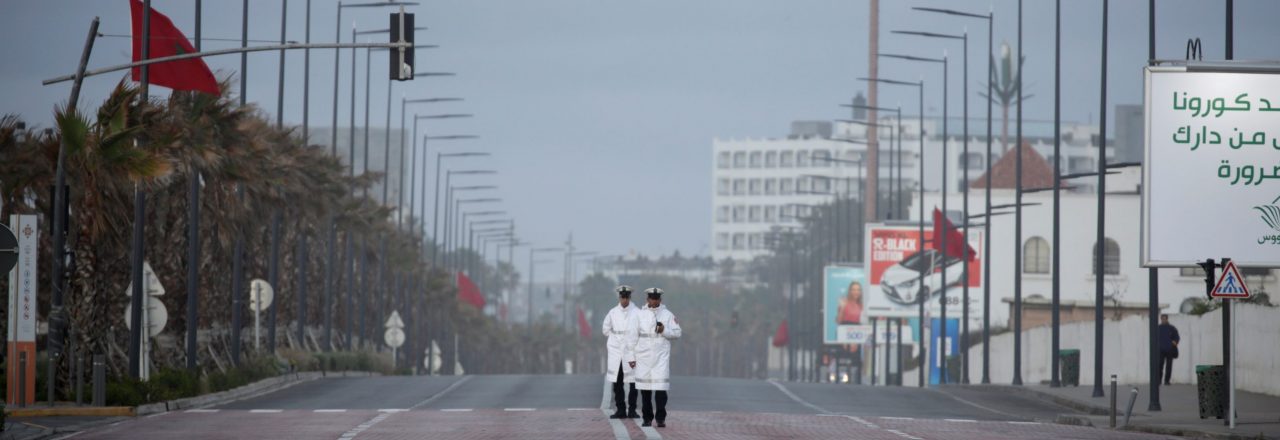
Abstract
There are countless articles these days on how the Covid-19 crisis is stress-testing the mechanisms and very foundations of European solidarity. Some observers, driven by different agendas, go even further and claim that it is the very existence of the European Union (EU), already weakened by the high-speed succession of crises over the last decade, which is at stake. While the EU domestic dimension of the crisis is in the spotlight, less ink has been spilled over the impact of such a crisis for its external relations, including those with its Southern Neighbourhood.
Yet, there is little doubt that the coronavirus will be another litmus test for Euro-Mediterranean relations, which were already strained or at best on hold for a number of reasons, even before the crisis. Strained because of misunderstandings or irritants with specific countries over trade relations, political issues, human rights or the reform agenda. On hold because the new team in Brussels was waiting to stabilise relations with its interlocutors, sometimes new themselves, following political developments in some Middle East and North Africa countries.
2020 was going to be a landmark year for Euro-Mediterranean relations. Not only because of the Barcelona Declaration’s 25th anniversary, which was starting to gain traction, but also because of the planned renewal of Partnership Priorities between Southern Neighbourhood countries and the EU. As part of the European Neighbourhood Policy (ENP), these new priorities were going to serve as the political foundation for the programming exercise of the new financial instrument (the Neighbourhood, Development and International Cooperation Instrument, NDICI) under the 2020-2027 Multi-Financial Framework. All of this is unlikely to work by the book, and the coronavirus crisis will definitely be a game changer.
At the time these lines are being written, it is still too early to determine how strong the virus will hit Maghreb and Mashreq countries. There are important question marks both in relation with the reliability of official numbers and the future scenarios. However, even under the most optimistic ones, the impact on the region is likely to be severe. In the short term, the comparative advantage of this third wave of affected countries – the fact that they could learn from mistakes and achievements from other countries hit first – might be outweighed by the unpreparedness of health systems and other structural weaknesses.
In the medium term, weak social security nets, the poor state of some states’ treasuries, shrinking oil revenues in others and a devastated tourism sector, among other issues, may lead to dramatic situations and amplify current problems such as socioeconomic inequalities. The crisis is also likely to have important political implications in a number of countries where the pressure on dissent and opposition could grow. On the security front, it remains to be seen how some terrorist groups will try to exploit the crisis as an opportunity to regain strength.
The EU response will be determined and constrained by a series of factors of different kinds. First, even if EU institutions and member states are already working hard on how they can help their southern neighbours, the EU will remain for some time absorbed by the domestic intricacies of this crisis and may not be very keen on communicating its external efforts to a sensitive public.
Second, its material margin of manoeuvre is not infinite. The EU has already started triggering emergency mechanisms, frontloading budgetary support and assistance under different instruments and cooperating with multilateral organisations such as the United Nations or the World Health Organization to address urgent needs. However, as we approach the end of the 2014-2020 financial cycle, fresh resources are scarce.
Third, and more operationally, after working around the clock over the last weeks to coordinate the repatriation of EU citizens and send reporting to Brussels, some EU Delegations may be forced to consider the partial or total repatriation of their staff, which would also hamper the EU’s capacity on the ground.
Fourth, the EU’s support will obviously need to adjust to the needs as expressed by the countries themselves. So far, a number of countries have asked for support, but others seem to be rather reluctant to turn to the donors’ community. In any case, donor coordination will be more essential than ever.
Despite all these constraints, the EU has been rather quick in getting its act together. On 31 March, the EU Commissioner for Neighbourhood and Enlargement Olivér Várhelyi announced a new package of almost €240 million via the EU Regional Trust Fund in Response to the Syrian Crisis, targeting three countries hosting Syrian refugees – i.e. Jordan, Lebanon and Iraq – with the objective of assisting them in better facing public health challenges. Over the last few days, the EU has also announced that it would frontload €250 million to help Tunisia deal with immediate needs and that it would support Morocco with a direct contribution of €150 million to the special fund dedicated to the management of the coronavirus announced by King Mohammed VI, as well as a flexible use of its €300 million bilateral assistance.
Business as usual will not be an option for EU relations with its Southern Neighbourhood, neither this year nor probably beyond 2020, as the Euro-Mediterranean partnership may be reshaped as a result of the coronavirus outbreak. After focusing on the immediate needs of those countries, the EU will have to adjust its ENP instruments in the medium term, balancing between its core interests in terms of security and migration, its new political priorities such as the Green Deal and digitalisation, and the new reality emerging from the crisis. While doing so, it will need to be flexible and creative. The EU needs to reinvent itself internally and come up with new instruments to deal with the situation. The same probably goes for its external policies.



